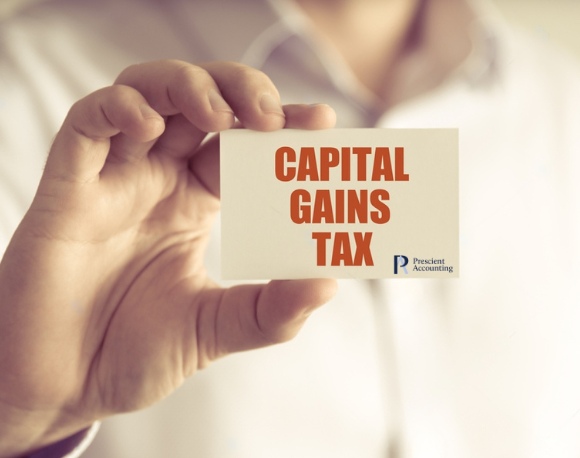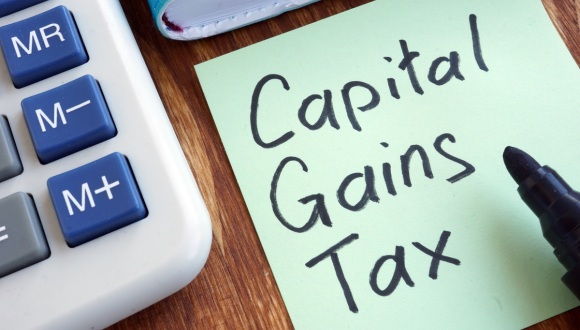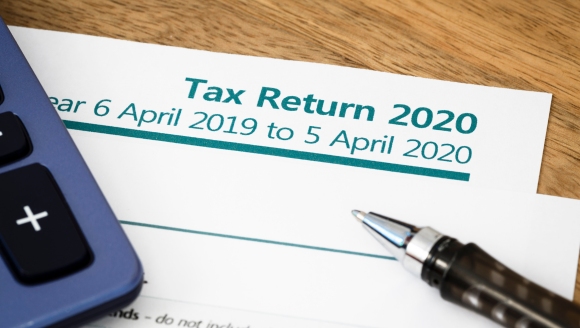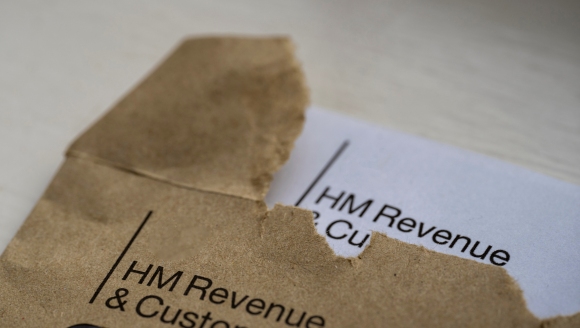


We all know that we must pay tax at some point, but a small percentage (currently around 3%) of the UK will face the possibility of having to pay Capital Gains Tax due to their personal circumstances.
As with most UK tax laws, this isn't always an easy or straightforward process. And for busy people, it can be a time-consuming headache they can well do without!
At Prescient Accounting, we specialise in specific areas, training our accountants to focus on certain subjects, and CGT is one in which we excel.
When you need assistance in this area, we can provide a Capital Gains Tax accountant to steer you through the process smoothly.

Let us know what you need from your accountants, we’re happy to help.
We believe that the role of the accountant is much more than dealing with pure compliance. That’s why we’re offering a free video or telephone call with one of our team of chartered accountants, to give you straightforward and open dialogue about your tax and accounting affairs.

Capital Gains Tax (CGT) is levied by the UK government on the profit you make when you dispose of chargeable assets that have increased in value. This means you only pay CGT on the gain you make, not the entire sale price of the asset.
Here are some key points to be aware of:
This is the term used for capital assets that are subject to CGT when 'disposed of', meaning that it is sold, given away, swapped for another asset, or ownership is transferred to someone else.
Common examples include:
Working your way through these areas can be a chore, and it's easy to become confused when trying to calculate capital gains tax liabilities.
If you've been struggling with this, or you're not looking forward to facing this task in the future, Prescient Accounting offers first-class capital gains tax advice and support to get you up to speed.
Prescient Accounting's Capital Gains Tax accountants can help you with:
Our Capital Gains Tax advice covers every facet of this complex subject, so feel free to contact us and
Staying up-to-date with the latest CGT rules is imperative. For the current tax year, here are some key points:
It's important to be aware that tax rules and allowances can – and do - change. Our qualified tax advisors will always provide the most up-to-date information.
In the UK, Capital Gains Tax (CGT) applies to individuals and entities who dispose of chargeable assets that have increased in value, generating a capital gain. This can encompass residents and non-residents, with some key distinctions.

Those residing in the UK generally pay CGT on most chargeable assets, regardless of their location for tax purposes. This encompasses:
Anyone officially residing outside of the UK will only pay CGT on specific chargeable assets:

Prescient Accounting's dedicated CGT accountants offer a comprehensive range of services to ensure your Capital Gains Tax affairs are handled efficiently and effectively. Here's how your qualified tax advisor can support you:
By partnering with a Prescient Accounting CGT accountant, you'll benefit from a comprehensive approach that goes beyond simply filing your tax return.
We'll work closely with you, offering expert tax advice to ensure your Capital Gains Tax bills are minimised, giving you the confidence and clarity you need to make informed financial decisions.
Our specialist Capital Gains Tax accountants will strive to reduce your Capital Gains tax liability by exploring various relief and exemption possibilities, including:

These are often referred to as the 'special Capital Gains rules', and it's a good idea to explore them as fully as possible to reduce your Capital Gains Tax liability.
It's also crucial to remember that eligibility for these reliefs and exemptions can be complex and subject to specific conditions and limitations. That's why it's always recommended to seek professional advice from a qualified CGT accountant - like those at Prescient Accounting - to determine which reliefs and exemptions might apply to your individual circumstances to reduce your Capital Gains Tax bill.
And with Prescient Accounting, you can be sure of the very best Capital Gains Tax advice.

Our Capital Gains advice covers all aspects, including the reporting procedure. The following outline gives a brief overview of the process, although HMRC rules are subject to change, which is why we update our advice regularly.
This is the standard method for reporting most capital gains, and it applies to the following:
If you haven't already, register for Self Assessment with HMRC. This is a free online process.
Once registered, complete a Self-assessment tax return for the tax year in which you disposed of the asset. The deadline for filing your return and paying any CGT owed is usually 31st December, following the tax year of disposal.
Within your return, declare the capital gain, including details like the asset type, purchase cost, disposal value, and any relevant reliefs or exemptions.
This method is specific to reporting capital gains on the disposal of UK residential property (including inherited) sold on or after 6th April 2020.
You'll need a Government Gateway user ID and password. Create one if you don't have one when registering for the Capital Gains Tax on a UK Property account.
Report the disposal through the online account, providing details like the property address, purchase and sale dates, and any relevant reliefs.
After submitting your report, HMRC will issue a reference number. Use this reference number to pay any CGT owed before the deadline.
Always keep accurate records of your asset purchases and disposals, including receipts and invoices.
Reporting a capital gains tax (CGT) loss can offer several advantages, allowing you to offset potential future capital gains and ultimately reduce your overall tax liability. Here's how you can benefit:
Our Capital gains tax advisors will talk you through the process so everything falls into place.
It depends on whether you pay capital gains tax late or fail to pay at all, and neither of these is a sensible option! The penalties for not paying Capital Gains Tax (CGT) on time in the UK can be quite significant and consist of several parts.

After six months and twelve months of the deadline passing, there are additional penalties based on the higher of:
HMRC will also charge interest on any unpaid CGT from the date the payment was due. This interest accrues daily.
HMRC can impose harsher penalties if they believe you deliberately withheld information to avoid paying CGT. These penalties can be:
It's wise to file your CGT return on time. The deadline for filing your CGT return is usually 60 days after the completion of the sale.
The deadline for paying your CGT is usually the same as the filing deadline (60 days after the completion of the sale), and it's essential that you meet this.
Our qualified CGT accountants will organise your tax affairs to ensure you meet the filing and payment deadlines and avoid potential penalties.

At Prescient Accounting, we understand the complexities of Capital Gains Tax. Our specialist tax advisors are here to guide you through the process, ensuring you claim all available allowances and reliefs while remaining compliant with HMRC regulations.
Whether you're a business owner, investor, or individual with questions about CGT, we offer a tailored service to suit your needs, with professional Capital Gains Tax advice you can rely on. Contact us today for a free initial consultation and discover how we can help you minimise your tax burden and achieve your financial goals.


Capital Gains Tax in the UK is a tax on the profit when you sell, or 'dispose of', an asset that has increased in value. It's the gain you make that's taxed, not the amount of money you receive.
To calculate Capital Gains Tax on property in the UK, subtract the purchase price and any allowable expenses from the selling price. The difference is your gain, on which CGT may be due.
Yes, you can reduce your Capital Gains Tax bill in the UK by using your annual tax-free allowance, deducting allowable expenses, and utilising reliefs like Private Residence Relief.
For the 2023/2024 tax year, the Capital Gains Tax rates in the UK are 10% for basic-rate taxpayers and 20% for higher and additional-rate taxpayers, with higher rates for property gains.
The Capital Gains Tax allowance in the UK allows you to earn a certain amount of gain each year without paying tax. For the 2023/2024 tax year, the allowance is set at £12,300.
Entrepreneurs' Relief, now known as Business Asset Disposal Relief, qualifies for a lower CGT rate of 10% on qualifying assets, up to a lifetime limit of £1 million, for those selling or closing their businesses.


We believe that the role of the accountant is much more than dealing with pure compliance. That’s why we’re offering a free video or telephone call with one of our team of chartered accountants, to give you straightforward and open dialogue about your tax and accounting affairs.